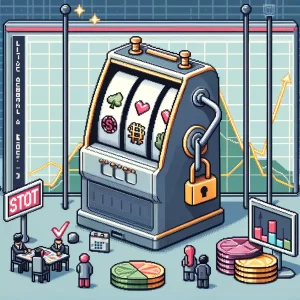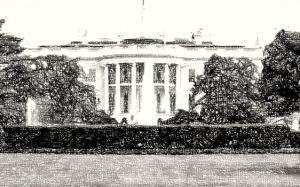
The Politics of Belief: Vaccine Hesitancy, Conspiracy Narratives, and the RFK Jr. Factor
Robert F. Kennedy Jr.’s nomination as the U.S. Secretary of Health and Human Services by Donald Trump is sparking a nationwide debate about the intersection of science, misinformation, and public trust.
RFK Jr.’s polarizing views on vaccines provide a stark lens through which to explore vaccine hesitancy, a growing public health concern. A recent scoping review sheds light on how conspiracy narratives shape attitudes toward vaccines, offering critical insights into why these beliefs persist and how they might be countered.
Vaccine Hesitancy and the Power of Conspiracy Narratives
The World Health Organization has identified vaccine hesitancy as one of the top 10 global health threats. While vaccine hesitancy has complex drivers—including mistrust of institutions and fear of side effects—conspiracy narratives play a significant role. These narratives, often spread via social media, suggest malevolent intent by governments or pharmaceutical companies, undermining public confidence in vaccines.
The scoping review analyzed over 200 studies and found that belief in vaccine-related conspiracies was linked to lower vaccination rates. For instance, one study showed that up to 60% of surveyed participants believed the debunked claim that vaccines cause autism. Exposure to such conspiracies, even fleetingly, has a measurable—albeit small—negative impact on vaccination intentions. This correlation, paired with the viral nature of misinformation online, makes combating these narratives a public health imperative.
RFK Jr.: A Case Study in Controversy
RFK Jr. exemplifies how influential figures can amplify vaccine hesitancy. Despite his public assertions that he is not “anti-vaccine,” his promotion of the debunked autism-vaccine link and other conspiracy theories suggests otherwise. For example, his claims about fluoride in drinking water causing IQ loss and thyroid issues echo the fear-mongering tactics often used to discredit public health measures.
Public health experts warn that such rhetoric undermines decades of progress in immunization. As Dr. David Elliman of Great Ormond Street Hospital bluntly puts it, “Vaccination has probably saved more lives and is better researched than most aspects of healthcare. RFK Jr. could set this back and be responsible for death and disability, particularly among children.”
How Do Conspiracy Narratives Gain Traction?
The scoping review revealed that vaccine-related conspiracy narratives often thrive in times of crisis, such as the COVID-19 pandemic. These narratives are shared widely on platforms like Twitter and YouTube, where anti-vaccination content frequently outperforms pro-vaccination posts in engagement.
For example, one study found that 78.9% of vaccine-related YouTube videos tweeted by anti-vaccination groups contained conspiracy narratives. These posts are designed to evoke fear and distrust, making them more shareable and harder to counteract.
Practical Applications: Combating Vaccine Hesitancy
While the scoping review highlights the challenges posed by conspiracy narratives, it also identifies potential interventions:
- Prebunking: Educating people about the tactics used in conspiracy narratives before they encounter them has shown promise. This proactive approach builds “cognitive resistance” to misinformation.
- Fact-Checking Labels: Although their effects are modest, adding correction messages to misinformation can reduce belief in conspiracy narratives.
- Leveraging Trusted Messengers: Studies suggest that health professionals are among the most trusted sources of vaccine information. Training them to address misinformation effectively could improve vaccination rates.
However, the review emphasizes that these interventions currently yield small effects, indicating the need for further innovation and research.
Why This Matters Now
The stakes could not be higher. Vaccine hesitancy fueled by conspiracy narratives threatens herd immunity, leaving populations vulnerable to outbreaks of preventable diseases. During the COVID-19 pandemic, this dynamic became starkly evident, with vaccination rates lagging in communities where conspiracy beliefs were prevalent.
The nomination of RFK Jr. to a pivotal health leadership role risks amplifying these issues. His position could lend legitimacy to unfounded claims, making it even harder for public health practitioners to counteract misinformation.
What’s Next?
The scoping review underscores the urgent need for a multipronged approach to tackle vaccine hesitancy. Future research must focus on developing more effective interventions and understanding the demographics most susceptible to conspiracy beliefs. Policymakers and public health professionals also need to advocate for stronger regulations on misinformation and greater transparency in health communication.
Moreover, the public must remain vigilant about the leaders they entrust with health policy. The controversy surrounding RFK Jr.’s nomination serves as a stark reminder of the critical role of evidence-based decision-making in safeguarding public health.
Join the Conversation
What are your thoughts on the impact of leaders like RFK Jr. on public health? How can we better address vaccine hesitancy in a world awash with misinformation? Share your insights in the comments or on social media using #VaccineHesitancy.
Be Part of the Change – Get Weekly Updates!
Stay informed and connected. Subscribe for free and share this blog to make a difference in public health with others. If you liked this blog, please share it! Your referrals help This Week in Public Health reach new readers.



